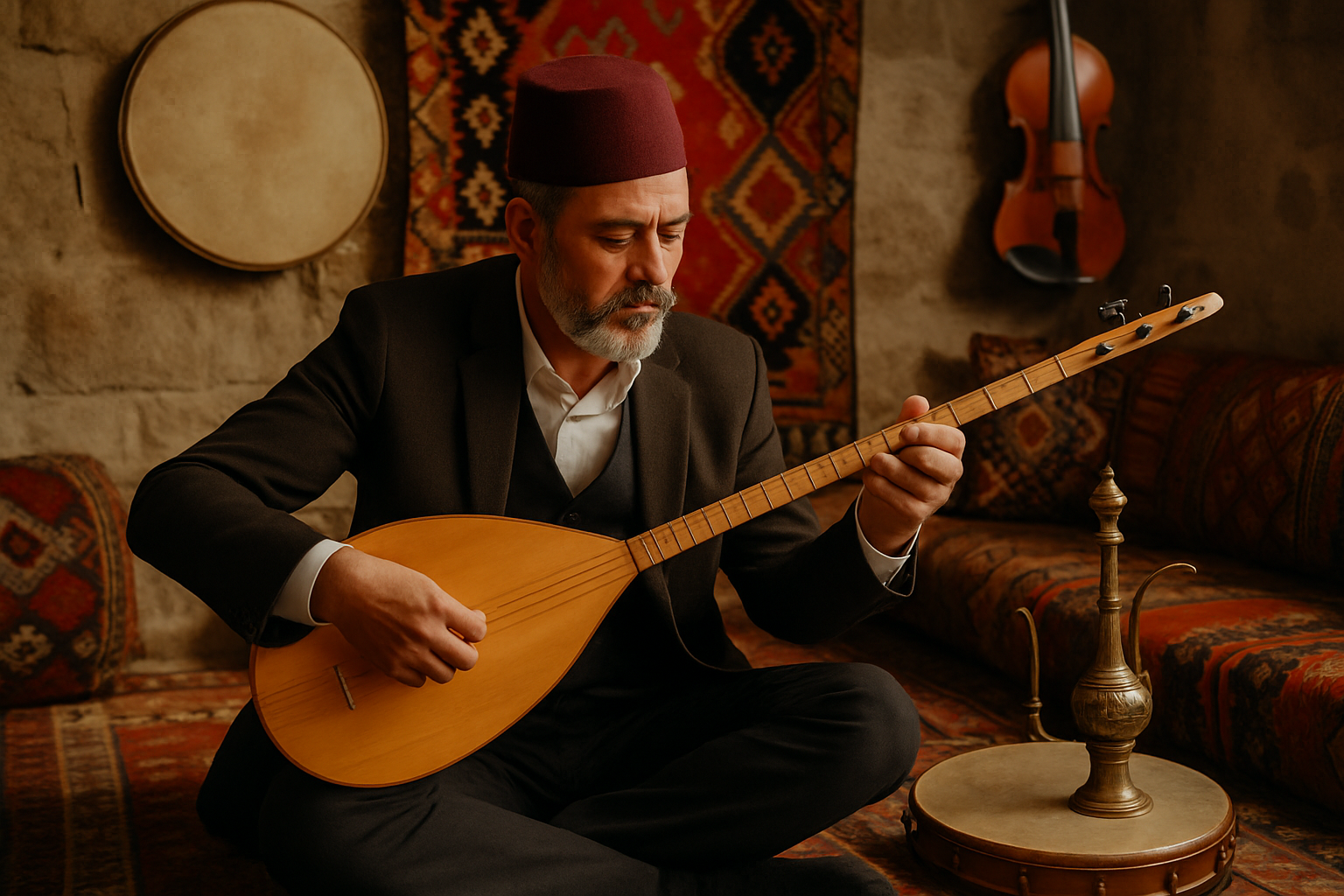Traditional Turkish Music: Genres and Where to Listen

Living in Türkiye as an expat can be both exhilarating and overwhelming. Adjusting to new customs, sounds, and daily routines is a journey that requires patience and curiosity. One of the most rewarding ways to immerse yourself is through music. Traditional Turkish music offers an inviting entry point to local culture. By learning about the diverse genres and experiencing live performances, expats not only enjoy entertainment but also foster deeper connections with their new home.
Understanding Traditional Turkish Music: A Brief Overview
Traditional Turkish music covers a vibrant tapestry of styles that reflect centuries of history and cultural fusion. Whether you hear melodies in the café, at a city festival, or on your neighbor’s radio, the sounds tell stories of Anatolia, Ottoman courts, and village life.
- Folk (Türk Halk Müziği): Stemming from rural traditions, this genre features regional instruments and often tells stories of love, nature, and social values.
- Classical (Türk Sanat Müziği): Linked to the Ottoman palace, this style uses refined modes (makam), sophisticated lyrics, and vocals accompanied by string and wind instruments.
- Religious & Ritual (Tasavvuf Müziği): Deeply spiritual, this includes the Sufi tradition of spiritual chanting and devotional songs, used in sacred ceremonies.
- Mehter: The historic Ottoman military band music, famous for its bold drums, cymbals, and wind instruments, often played at cultural celebrations.
- Urban Pop Fusion: While not strictly traditional, many modern Turkish artists blend folk and classical elements for a unique soundscape.
Choosing to listen to or learn about these styles helps you navigate conversations and social situations, building bridges with local friends and neighbors.
Key Features of Turkish Folk Music (Türk Halk Müziği)
Folk music connects expats directly to the heart of Turkish villages and everyday life. Typical instruments include the bağlama (a long-necked lute), kaval (wooden flute), and davul (big drum). The songs vary by region, so listening to folk music helps you travel across Anatolia without leaving your city.
- Song themes often revolve around village stories, epic romances, and agricultural life.
- Simple rhythms make the music lively and accessible, even if you do not know Turkish.
- Popular artists such as Neşet Ertaş or Selda Bağcan offer recordings for easy listening.
Consider visiting public festivals or neighborhood gatherings, especially during spring or harvest time. Local municipalities may host free open-air concerts where folk groups play live, offering an authentic and affordable activity.
The Elegant World of Turkish Classical Music (Türk Sanat Müziği)
Turkish classical music introduces you to the refined artistic traditions of Istanbul and the Ottoman court. Performances often involve solo vocalists accompanied by an ensemble playing oud (short-necked lute), kanun (zither), and ney (reed flute).
- Lyrics are derived from Ottoman poetry, touching on love, longing, and philosophical themes.
- The distinct makam system creates a mesmerizing, emotional sound unique to Turkish music.
- Led by artists such as Zeki Müren and Müzeyyen Senar, recordings are widely available in local music shops.
Major concert halls in Istanbul, Ankara, and Izmir schedule classical performances throughout the year. Look for events at Cemal Reşit Rey Concert Hall (Istanbul) or CRR, featuring both established and emerging artists.
Experience Religious and Sufi Music in Türkiye
Religious and Sufi music introduces you to the spiritual side of Turkish culture. The whirling dervish ceremonies, or Sema, feature meditative tunes performed live, inviting the audience into a reflective mood. Instruments such as the ney and kudüm (small drum) play supporting roles, while the dervishes whirl in flowing robes.
- Ceremonies take place at Mevlevi Lodges, such as Istanbul’s Galata Mevlevihanesi Museum.
- Spiritual concerts, especially during Ramadan, are open to both locals and visitors.
- Participating in these events offers a peaceful way to unplug from urban stress and gain insight into local beliefs.
Before attending, dress respectfully and arrive early for the best viewing spot. Photography is often limited during ceremonies, so focus on experiencing the atmosphere fully.
Best Places and Practical Tips for Listening Live
Türkiye offers countless opportunities to hear traditional music in vibrant settings. City centers and historic districts mix the old with the new, ensuring there is always something interesting for expats to discover.
- Meyhanes and Taverns: Local eateries host live folk and fasil (urban folk) groups. Try Kumkapı in Istanbul for the bustling tavern scene.
- Cultural Centers: Venues such as Atatürk Cultural Center (AKM) in Istanbul or Nazım Hikmet Cultural Center in Ankara feature regular concerts.
- Festivals: The Istanbul Music Festival (June), Konya Mystic Music Festival (September), and regional fairs provide seasonal highlights.
- Public Parks and Squares: In warmer months, pop-up stages in city parks draw crowds with free concerts showcasing local talent.
- Online Platforms: Many performances are streamed on YouTube, Spotify, and even municipal web channels for convenient access from your new home.
Take advantage of local postings, ask neighbors, or follow regional social media accounts to stay updated on upcoming events. Sharing your musical experiences also sparks great conversations with Turkish friends and can help you feel more at home.
Bringing it All Together: Music as Your Expat Guide
Embracing traditional Turkish music offers more than a soundtrack for your expat adventure—it provides a practical, enjoyable way to connect with people and learn about your surroundings. Listening live, joining in local events, or simply exploring music at home helps smooth the transition into Turkish life, making every day more meaningful. Step out, listen, and let the rich sounds of Türkiye become part of your new chapter.
